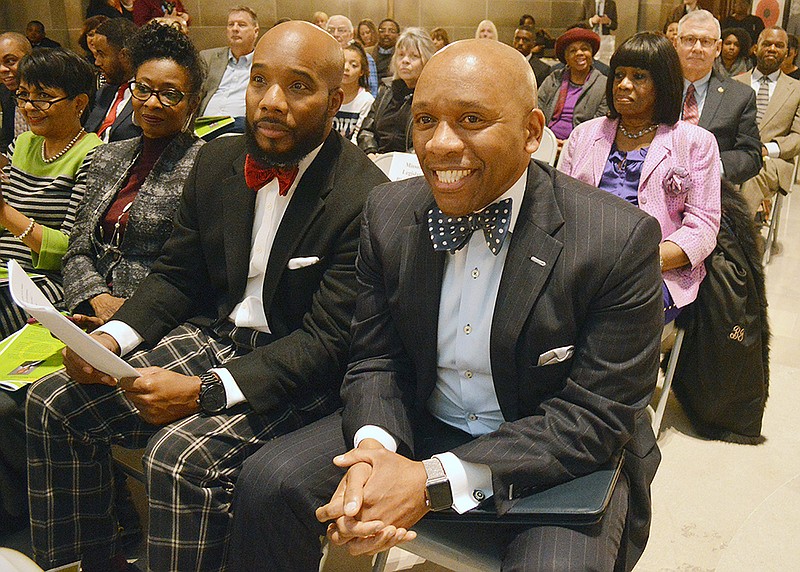Nearly 50 years after his assassination, there are pitfalls in remembering the Rev. Martin Luther King Jr. more as a hero than the man he really was, several speakers said at Tuesday's 90-minute MLK Celebration at the Capitol.
Monday - a national holiday - is the 89th anniversary of King's birth.
Keynote speaker Kevin McDonald cited historian Vincent Harding's comment, in his book, "Martin Luther King, The Inconvenient Hero," where Harding - one of King's friends as well as a neighbor in Atlanta - wrote: "It appears as if the price of the first national holiday honoring a black man is the development of a massive case of national amnesia concerning who that black man really was."
Missouri Supreme Court Judge George Draper III told about 100 gathered in the Rotunda for the annual Legislative Black Caucus program that many people honor King as a hero, "which he is, indeed, but he was also a man."
We "have a tendency to romanticize" King's legacy when we look back on this a half-century later, Draper said, and even King's sister, Christine King Farris, "wants to help demythologize one of our heroes. My brother was no saint - but an average and ordinary man."
Still, Draper said: "Dr. King sacrificed much for our people, for the (civil rights) movement, for this nation and for the world."
McDonald added, "(King was) an American who led the most profound social movement in American history - who changed the lives of millions of people he would never come to know (and) lost his life attempting to heal the most terrible wounds in our society."
However, even though today's society has "traveled an extraordinary distance from (King's) long night in a Birmingham jail," McDonald said, "the current level of progress across our nation would have dismayed Dr. King, because today's King would have carried a very different mindset" from the one most people remember the murdered leader by.
"Let's not forget that King was as much reviled as he was revered," McDonald said. "The FBI once said he was the most dangerous man in America (because) he cut against the grain."
Draper noted King's father was a Baptist preacher, and before following in his father's footsteps, the young King entered Atlanta's Morehouse College with plans to become a lawyer.
Influenced by others, he decided to go into the ministry instead.
However, in the 1960s, McDonald noted, "Morehouse College wouldn't let King on the Board of Trustees because they said he was a bad influence on young people because he went to jail too much."
McDonald, who holds an education doctorate degree and also is an attorney, is the four-campus University of Missouri System's vice-chancellor for Inclusion, Diversity and Equity.
Without King's leadership of the civil rights movement in the 1950s and '60s, Draper noted, "The state of our nation might be quite different. We might not have the representation we have here today. Indeed, that movement and the person and the sacrifice of Dr. King changed the world."
McDonald added, we should remember King because he "challenged our nation to envision what it should be - not what it could be - by unpacking its 'stuff,' its values."
King's message was "part of a tradition of a people who were terrorized, traumatized and stigmatized for 400 years" of slavery and segregation in the United States, McDonald reminded the MLK Celebration audience.
Before his death April 4, 1968, in Memphis, Tennessee, McDonald said, King had already started moving away from his integrationist dream to a different vision: restructuring American society to "save the soul of a nation" and create one society where people of many different backgrounds and faiths really live together.
Following that goal will "require all of us to look at ourselves with new eyes," McDonald said.

